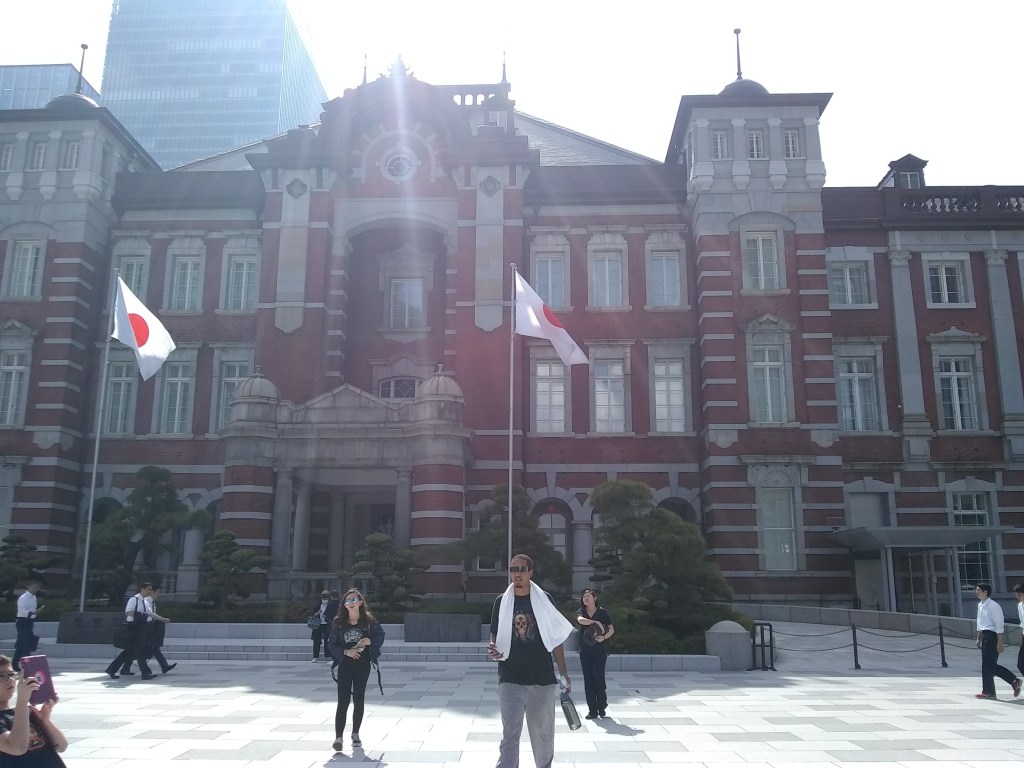Every country has things that they do that are better than other countries. I always enjoy paying attention to the things that I think would be good to bring back to the States. This is my list of 8 things they do in Japan that we should start doing in the U.S.
1. Dress Nice
The people of Japan dress nice. Every day, even on weekends. There was one Saturday that I was wearing my typical short shorts and I happened to look around and noticed that no one else was wearing shorts like mine. Everyone had on classy, tasteful clothes. It lent everyone I met an air of professionalism, which I found I really appreciated.
2. Use Hand Towels
The bathrooms in Japan don’t provide paper towels. Instead, most people walk around with a small hand towel that they keep exclusively for drying their hands. This means no paper towel waste in the bathrooms. If there isn’t all that waste, then they don’t have to pay someone to take out the trash every day and they don’t have to pay for trash bags. Full level sustainability for the win!
3. Cash Only
I’m not saying we should never ever use debit or credit cards, but there is something to be said for having to carry money for the day. It was a great budgeting tool, because once we were out of money, we couldn’t buy any more crap. More appreciated though, beyond wise budgeting, was that because everyone paid in cash, no one was impatient when we sat there and counted out exact change.
4. Free WiFi
Okay, not all WiFi was free, I’m sure. Big cities such as Tokyo and Akihabara had it. So did the express train from Tokyo to the airport. The airport also had free WiFi. Most of the major train stations had it as well. My point is, Japan understands that this is the age of technology. We invested in little WiFi hotspots, but we really could have gone without them since so many places had it already.
5. Transit System / Bullet Train
Most of you know I live in the Denver, Colorado area. I take the bus around all the time and really advocate for use of the bus system here. I believe we have one of the best transit systems in the United States here in this Denver area. We have nothing compared to Japan though. You really can live completely without a car. There are train stations in every little town. The bullet train is amazing, taking you across the country in a matter of hours. From Tokyo to Osaka (397 km / 247 miles) it takes 2 hours and 30 minutes exactly (their trains are very on time). To give you some perspective, to drive from Loveland, Colorado to the New Mexico border on I-25 is exactly 250 miles and will take you about 4 hours.
6. Accessibility
If I ever lose my sight or end up in a wheelchair, I’m moving to Japan. Japan is so accessible I was actually surprised. You have to get pretty far off the beaten path to find sidewalks that don’t have lines and bumps on them to guide people with visual impairments. Every crosswalk chirps or is silent when it is appropriate to cross. The bathrooms are very accessible for wheelchairs, including bars and convenient hand washing stations right next to the toilet. There are also a lot of emergency buttons in the bathroom, in the event of falling I suspect. There was even an emergency pull tab stashed under the sink if someone fell and needed help up.
7. Pay Well and Don’t Tip
I enjoyed paying for my meal and being done with it. Not because I’m cheap (although I am), but because it meant that the people working in the restaurant industry were actually making a livable wage. The businesses paid their people what they deserved to make and it didn’t fall to the customer to make up the remaining balance.
8. Pizza Scooters
Along with paying restaurant servers well, I had the feeling that most industries paid better and treated their employees better. An example of this were all the little pizza scooters I saw around. Instead of expecting their employees to have their own car and deliver pizzas that way, they provided small pizza scooters. They had entire fleets of them which the employees drove around to deliver the pizza. This meant the business was taking on more responsibility and I also suspect those little scooters are more sustainable and better for the environment.
Other Japan Blogs:




